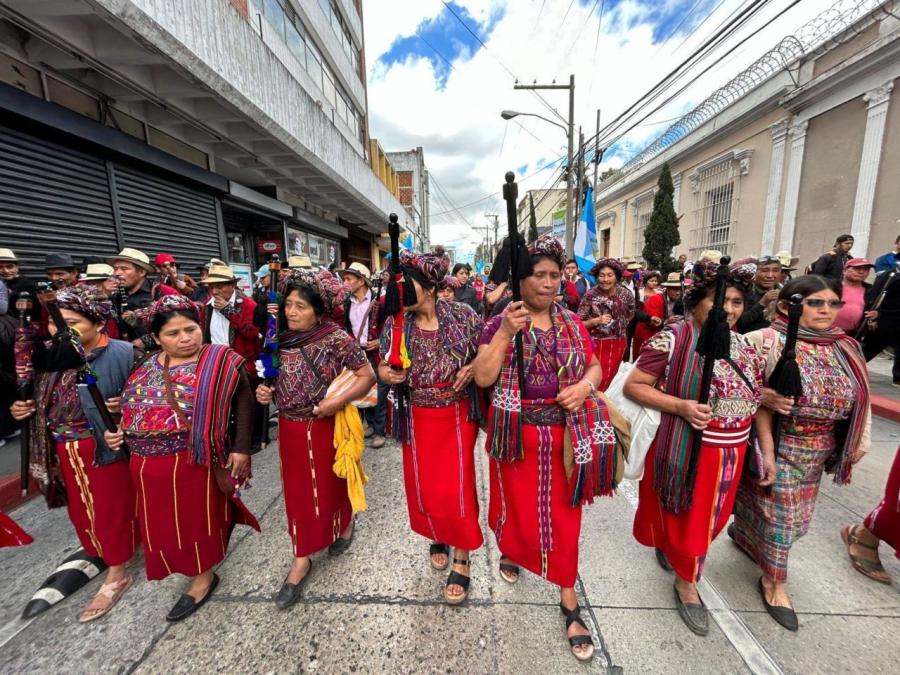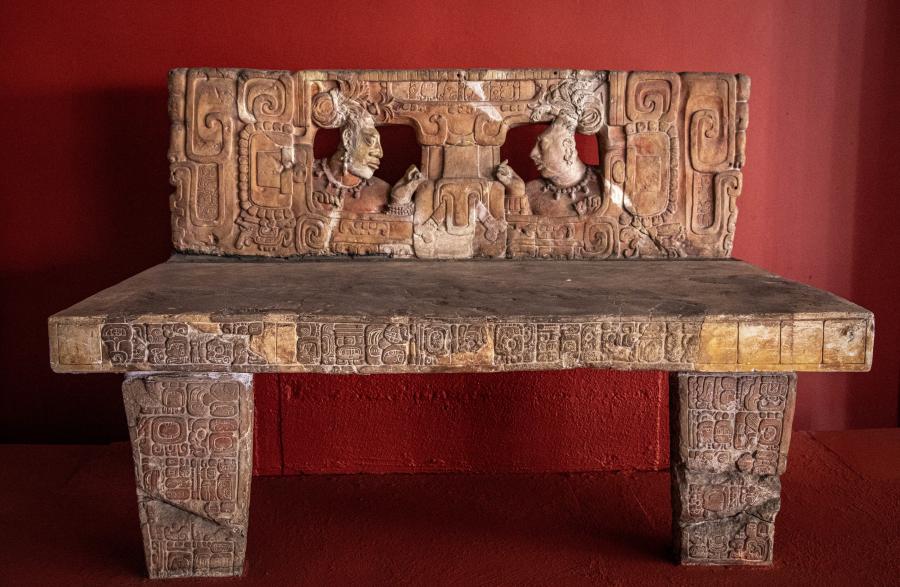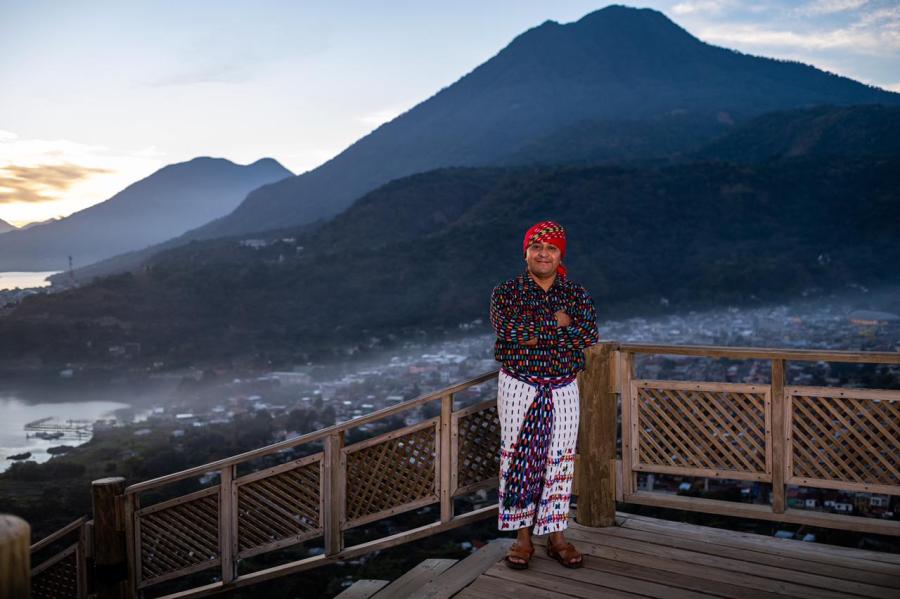
August 9 was the International Day of the World’s Indigenous People. In Guatemala, Indigenous groups and organizations around the country commemorated this event by shutting down all the major highways in the country with organized demonstrations. The demonstrations took place to demand that the rights of Indigenous communities be respected. Indigenous organizations around the country coordinated efforts so that the demands listed at each protest were the same. The general sentiment of the protests as sited by Indigenous leader Paulina Culum, was that they were “against the injustice, inequality, and corruption that have plagued [Indigenous] communities in Guatemala over the last 500 years, and continue to do so today”.
[[{"fid":"61895","view_mode":"media_original","type":"media","attributes":{"height":2651,"width":2848,"style":"height: 372px; width: 400px; ","class":"media-element file-media-original"}}]]
Paulina Culum, Indigenous community leader, speaking at the demonstration in los Encuentros, Sololá
Among the extensive list of legal initiatives and requests that were purported during the protests, was the community radio movement’s bill 4087, which proposes the legalization of community radio in the country. Individuals held signs supporting our initiative and the community leaders who’s voices echoed over the speakers listed the demands of our bill, which has been back shelved in congress for years along with a plethora of other Indigenous initiatives.
On the day of the demonstrations, we had team members in the capital recording all of the highlights of the day to transmit nationally to all of the community radio stations in our network. As well, one team member attended a protest at los Encuentros, a major intersection of the highway that connects the western part of the country with the capital city.
[[{"fid":"61896","view_mode":"media_original","type":"media","attributes":{"height":2848,"width":4272,"style":"width: 480px; height: 320px; ","class":"media-element file-media-original"}}]]
Protesters blocking the road at the demonstration in Los Encuentros, Sololá.
At the protest in los Encuentros, the road was blocked off with bricks and barbed wire, leaving a long line of cars, trucks and buses with nowhere to go on both sides. Behind this blockade stood lines of Indigenous women and men, holding signs that denounced the corrupt international mining projects, the illegal arrests of Indigenous leaders, the remilitarization of the country and the silencing of the Indigenous voices through the criminalization of community radio. Hundreds of protesters surrounded a van with loudspeakers where community leaders listed off the demands and initiatives of Indigenous communities that have been ignored in congress until now. As one leader stated, “the Peace Accords came and went, but none of the promises have been fulfilled, no changes have been made…we will not put up with this any longer”.
[[{"fid":"61900","view_mode":"media_original","type":"media","attributes":{"height":2848,"width":4272,"style":"width: 400px; height: 267px; ","class":"media-element file-media-original"}}]]
Two protesters holding a sign that reads: Community Radio: participating in the fight for memory, dignity and popular rebellion.
The protest was peaceful, and at mid-day the attendees voted to allow trucks and buses to have a period where they could pass through. There was police attendance and they helped direct traffic and manage the large crowds. A representative of the mayor of the Department of Sololá attended as well, and accepted the lengthy list of petitions along with a speech, stating his support for the Indigenous communities. All in all, the day was successful, yet an illustration of the long road that Indigenous peoples in Guatemala have ahead of them in the fight for their lands, languages and rights.



